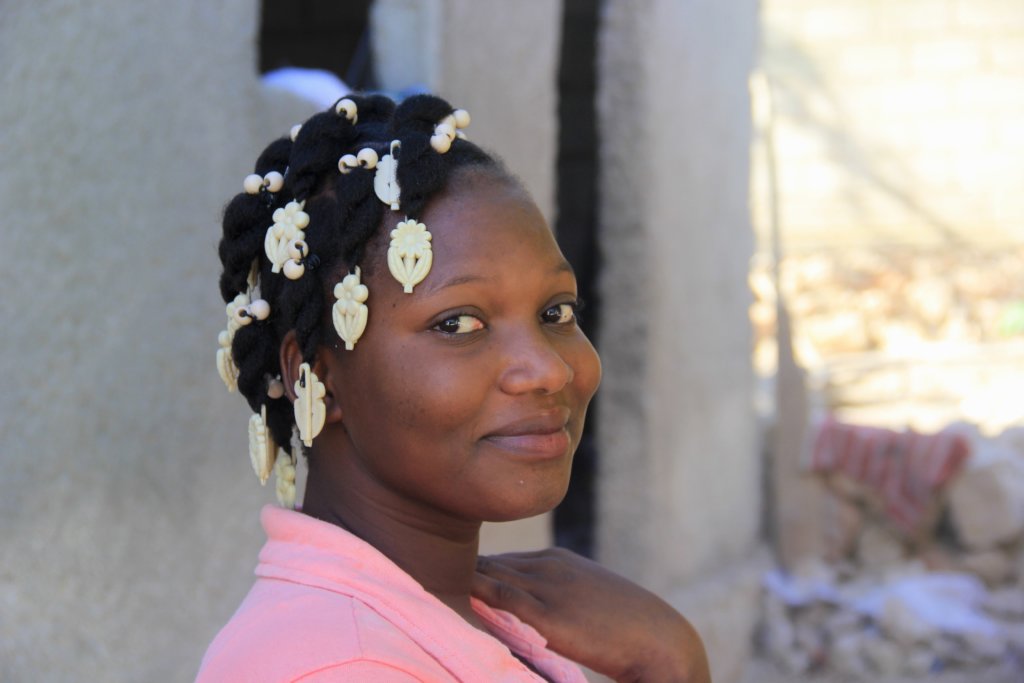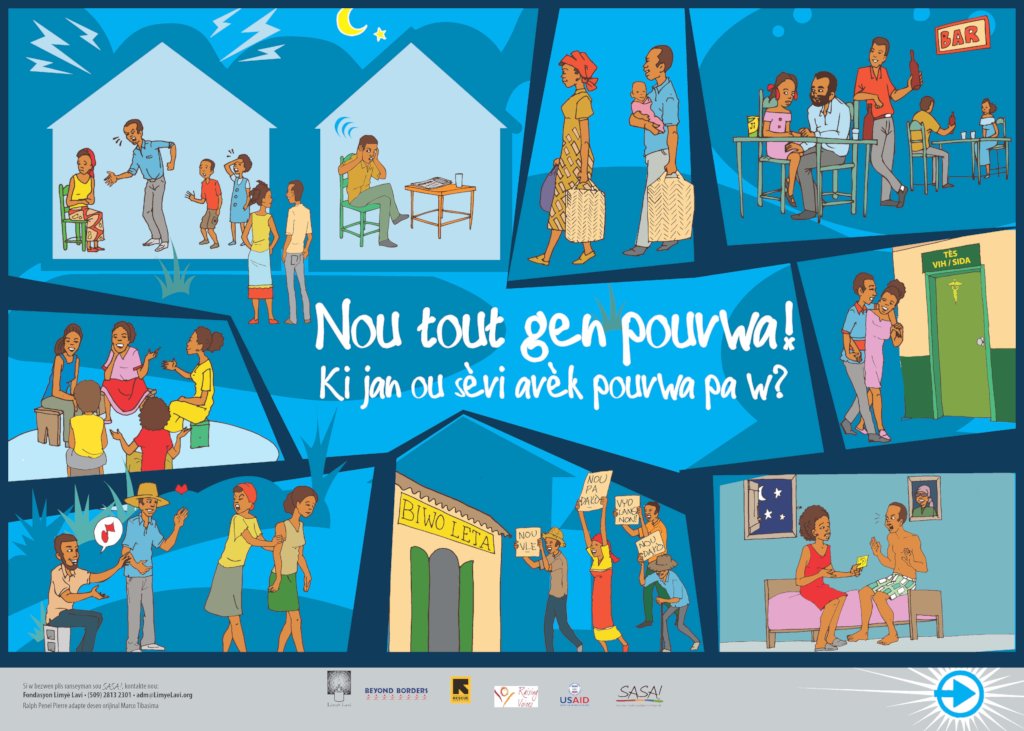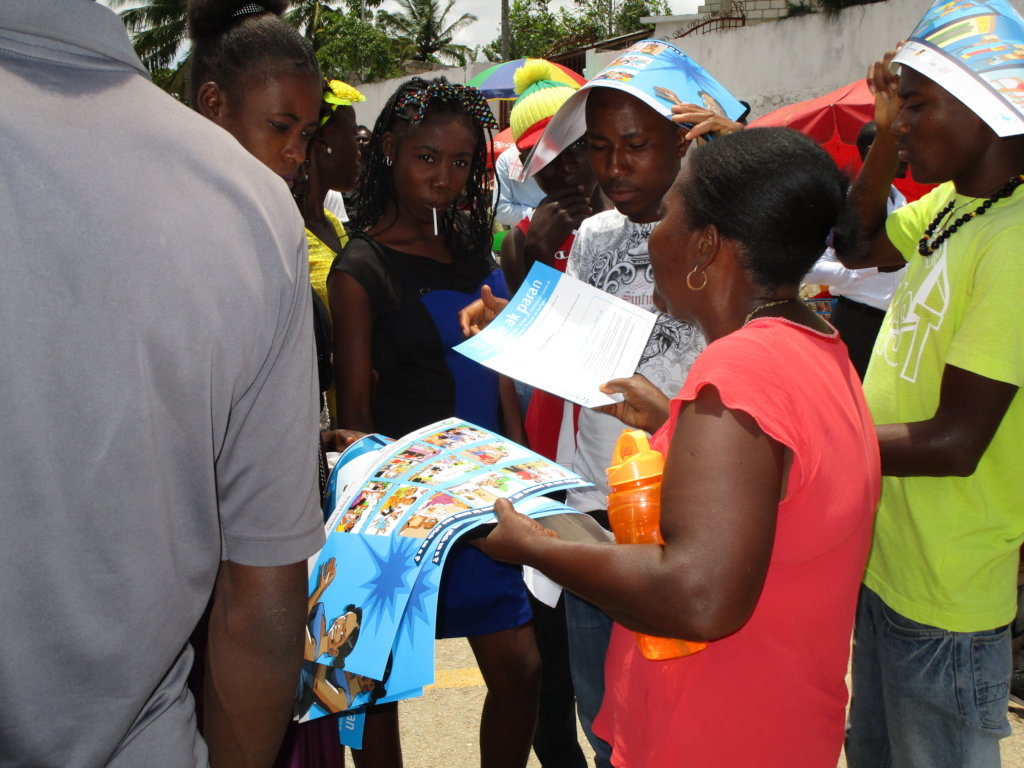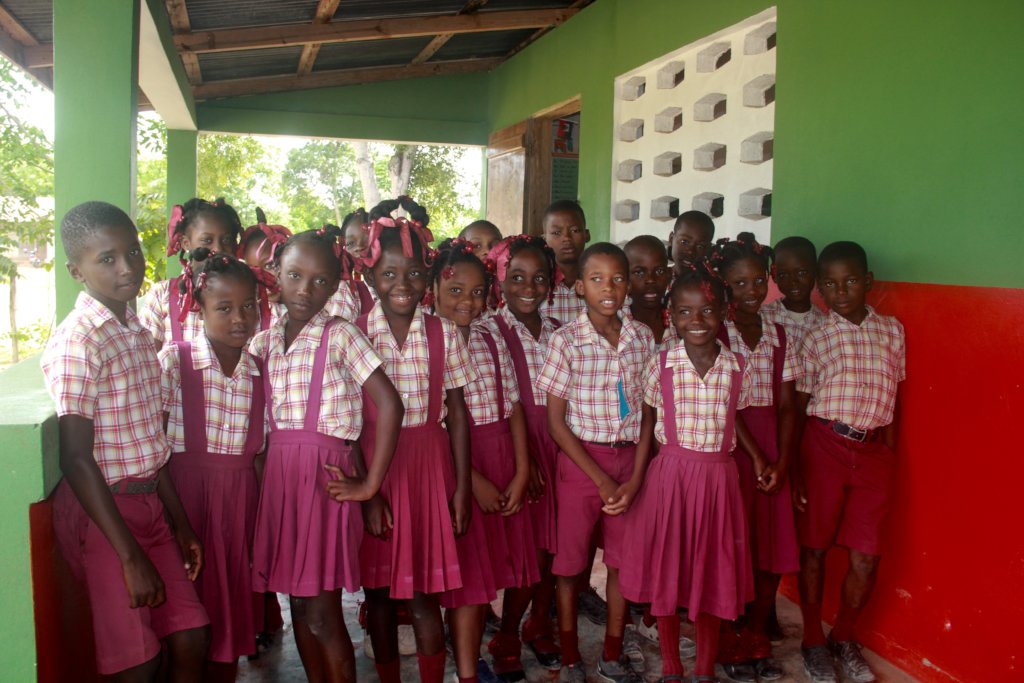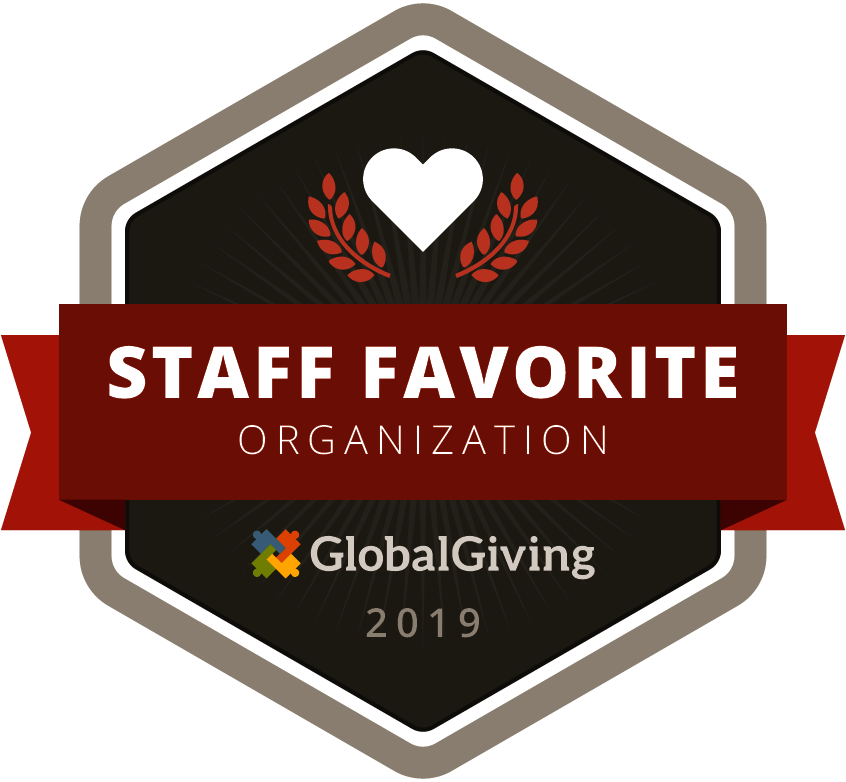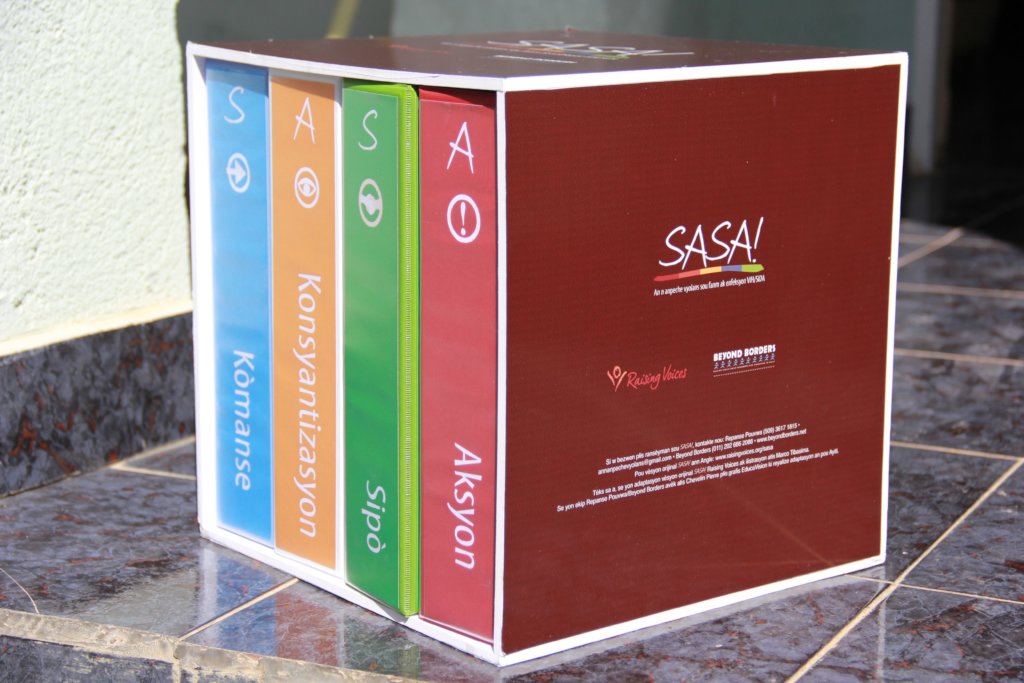By Brian Stevens | Donor Engagement Director
We Are Grateful for Your Generous Support
We are so grateful for your generous support for Beyond Borders’ Free, Educate, & Empower Girls in Haiti project. Thanks to you, the work to train and mobilize activists in communities across Haiti to build the movement to prevent violence against women and girls; improve girls' access to educational opportunities and make schools safer; and end child slavery, which disproportionately traps girls, continues to expand.
You Make School Possible for More Girls Like Loudamise
Loudamise is a sixth-grader on Lagonav Island. At 16, Loudamise is five years older than most girls and boys in the sixth grade. She almost never got the chance to go to school at all. But thanks to your support, her school is one of 25 in Beyond Borders’ Schools Not Slavery Network where teachers are trained in a government-approved curriculum called Accelerated Education that helps students who start school late - because they were enslaved or because their parents couldn’t afford to send them to school - to make up the grades they missed and complete their education. “My favorite subject is French, and I want to be an agronomist when I grow up,” Loudamise told us. Thank you for making an education for her and many more girls like her possible!
You Make Critically Needed Work to Prevent Violence Against Girls & Women Possible
Your support is also making critically needed violence prevention work possible in Haiti, where girls and women face high levels of violence and discrimination. One in three Haitian women has experienced some form of violence in their lifetime, and one in three girls has already experienced violence by age 18. One in five girls in Haiti reported their first sexual experience was forced. These experiences have acute and long-term consequences for survivors, as global research shows that violence against women and girls affects the mental and physical health of survivors, including an increased risk of injuries, death, unwanted pregnancy, contracting sexually transmitted diseases, mental health problems, and maternal health problems. Overall acceptance of violence against women as normal is also common, with 80% of Haitian men reporting that they think violence against women and girls is justifiable in some situations. But your support is making the work to change all this possible.
More Than 67,000 Women and Men Reached by Community Activists Since 2010
With support from you and people like you, since 2010, more than 1000 community activists and civic and religious leaders from 20 communities have engaged neighbors in a multi-year community mobilization process to balance power between women and men, prevent violence against women and girls, and ensure equality of opportunity for girls and women. This programming has reached more than 67,000 people with dialogue and messages to transform the ways that families and communities share power between women and men, and the way that they think about and address violence against women and girls.
Building a Grassroots-Led Movement to Create Lasting, Sustainable Change
The programming that your support makes possible is designed to be led primarily by grassroots community activists trained by Beyond Borders who work completely as volunteers. By using participatory approaches that build community capacity and shift social norms, Beyond Borders engages the community itself in taking responsibility for transforming attitudes and building local movements. Communities continue to organize themselves to defend the rights of children, prevent and reduce violence against women and girls, and teach others to do the same without continued dependence on Beyond Borders.
For example, community activists and network members trained in the four-phases of the SASA! methodology that Beyond Borders uses to prevent violence against women and girls (Start, Awareness, Support, Action) seek to influence others in the course of their day-to-day lives, to teach others how to balance power between women and men, and prevent violence against women and girls. So, pastors are preaching sermons that encourage balanced power and nonviolence; teachers are transforming how they use their power in the classroom to create balanced spaces for girls as learners; health workers are changing how they serve survivors of violence; and couples are sharing how they’ve transformed the balance of power between women and men and girls and boys in their own homes.
By training and accompanying these volunteer community activists to use tools in the SASA! methodology to engage a community process, Beyond Borders is employing an ecological model to ensure engagement from people in all walks of life and from all different circles of influence. Your support makes this strategy of infiltration possible!
Your Support Makes ‘Power to Girls’, an Innovative, School-Based Violence Prevention Effort, Possible
Your support is making innovative school-based initiatives to prevent gender-based violence and balance power between women and men and girls and boys possible in Haiti. The goal of these initiatives is to increase access to school for girls and achieve a measurable reduction in violence against girls through increased knowledge and skills and changes in attitudes and behavior among teachers, school directors, and students themselves.
Power to Girls includes a school-wide process of change, recognizing schools as an institution with power over girls’ current lives and with the power to shape future social norms in a community.
The school-wide process of change includes:
Highlighted Achievements From the Third Quarter of FY19
Ending Child Slavery, Which Disproportionately Traps Girls - During the quarter, Beyond Borders’ Lagonav Island Child Rights team continued mobilizing 16 communities to protect children, including working with local Child Protection Brigades and local chapters of the Adult Survivors of Child Slavery Network. 27 children (17 girls, 10 boys) were rescued from child slavery situations in these partner communities.
The National Day to End the Practice of Restavèk (Child Slavery) was observed on November 17, 2018. This important day was marked and celebrated in multiple communities with joint activities organized by Child Protection Brigades and branches of the Adult Survivor Network. More than 4,200 people participated in awareness-raising activities.
On the occasion of national day, in the Lagonav Island community of Nan Sema, Child Rights Activists conducted household visits to raise awareness about the dangers of the child slavery and to promote prevention of violence against children. They closed a week’s worth of events with a town hall meeting to invite community members to share their ideas on the situation of children and how they can become more involved in promoting children’s rights.
During the quarter, BB continued technical support programming and a funding partnership with other organizations to implement child rights mobilization in their communities. This included:
Preventing Violence Against Women and Girls - Thanks to you, seven communities on Lagonav Island continue to work through the four-phase SASA! program to prevent violence against women and girls and balance power between women and men and girls and boys.
The communities of Nan Kafe and Matènwa have completed the assessment of Phase 3 – Support, and the results are being analyzed. The results will indicate if the communities are ready to move into the 4th and final phase – Action Phase. The communities of Masikren, Fonnèg, Chenkontan, Gransous and Bouziyèt have completed the assessment of Phase 2 – Awareness. Positive results will mean these communities move into the Support Phase (Phase 3).
Additional achievements that your support made possible this quarter include:
Completion of Joint Research Initiative – Beyond Borders completed a three-year collaborative research project with the University of California San Diego (UCSD), Center for Gender Equity and Health, and Raising Voices. The project aimed to research various adaptations of the SASA! methodology (including BB’s adaptation for Haiti) as well as the effectiveness of BB’s Technical Support program as a hub for providing technical assistance to implementing organizations. The results of the research were publicly presented in Haiti in January 2019 with the aim to foster greater visibility of and support for the SASA! methodology to prevent violence against women and girls and balance power between women and men and girls and boys. BB also used the occasion to present the Power to Girls methodology to those in attendance. The published report in English will be made available after 19 February 2019.
Establishing a Relationship with the Ministry of Women’s Affairs at the National Level – BB continued to advance efforts to establish a working relationship with the Ministry of Women’s Affairs. This is slow going, as repeated attempts to hold a follow-up meeting with the new Minister have failed. Some additional work behind the scenes with connections within the Ministry did allow for a phone call with the Deputy Executive Director and the Minister, who agreed to set up a meeting. Unfortunately, despite confirmation of date and time of meeting, the Minister did not show for the meeting. We have continued attempts to schedule, and have hope that this meeting will occur eventually. A working protocol for collaboration could lead to many positive outcomes!
Thank You
With your continued support, our team will continue these kinds of innovative initiatives in 2019, to reach more communities, more schools, and more grassroots leaders. Your support makes the work to free, educate, and empower girls in Haiti possible. We are grateful for your generosity, your care, and your concern. If you have any questions about what you read in this report, please feel free to contact Brian Stevens, Beyond Borders Donor Engagement Director, at b.stevens@beyondborders.net.
Links:
Project reports on GlobalGiving are posted directly to globalgiving.org by Project Leaders as they are completed, generally every 3-4 months. To protect the integrity of these documents, GlobalGiving does not alter them; therefore you may find some language or formatting issues.
If you donate to this project or have donated to this project, you can receive an email when this project posts a report. You can also subscribe for reports without donating.
Support this important cause by creating a personalized fundraising page.
Start a Fundraiser